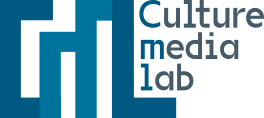
Hycar
- Project Holders : Annaïg Mahé, Elsa Poupardin
- Research projects
- 2018 - 2022
- Sponsors : GIS – Réseau URFIST
- Contact: Annaïg Mahé
- Contribution, Mapping, Quantitative methods, Scientific blogging, Scientific publication
The project aims to study the communication and visibility practices of humanities and social sciences researchers in the new digital scientific ecosystem.
The Hypotheses.org researchers’ notebooks allow a first entry on the non-academic writings which proliferating on the web. First of all, we will try to understand how researchers appropriate these tools and how they use them. The objective is to make a first typology of notebooks and of those who keep them. Can we identify different publication strategies? According to which criteria? Do the frequency, the size of the posts, the tone or the vocabulary used make it possible to identify and differentiate typical behaviors? What relationship to research practice, to publication and to the scientific legitimacy of different types of researcher’s writings do the research notebooks express? What place is there for communication, conversation, valorization, popularization and reflexivity in the practices of sharing and publishing online?
Secondly, it seems interesting to see how these notebooks relate to other forms of digital presence (open archives, social networks, newspaper blogs). Can we distinguish between the logics of sharing and the logics of communication? What (new) articulations between knowledge construction and knowledge sharing (under construction)? What commitments and what models of communication are mobilized by researchers?

Studied Medias
corpus of blog posts, Corpus of the hypotheses.org platform (2008-2020)
Delivrables
Communication in a conference, Article in a scientific journal, Scientific and professional conference, Web site and software in open science for availability
Methodology
• 1st step: work on a sub-corpus of notebooks (notebooks of French-speaking researchers). Several working sessions allowed to get familiar with the initial corpus and to define the desired job description for the mission on the data.
• 2nd step: recovery of the global corpus of Hypotheses. Realization of a “datathon” around the Hypotheses platform following the study day of January 8, 2019 organized in partnership with OpenEdition for the 10th anniversary of the Hypotheses platform.
• 3rd step: work on the data of the global corpus and on sub-corpuses (statistics, web information).
Expected results
• Deepen the understanding of communication and participation strategies of the scientific community on a scientific blogging platform
• Comparison of the presence of researchers in these notebooks with other forms of online presence (research social networks)
• Specificities of the lexicon and the use of citations in the case of these online notebooks
• Development of a method for analyzing blogs
Key Dates
• 2018-2019: Cycle of meetings focusing on Hypotheses.org research notebooks (HYCAR Project Seminar) https://metacarnet.hypotheses.org/36
• October 9, 2018: Hypotheses.org: an interdisciplinary research object – HYCAR Project Seminar Launch
• December 11, 2018: Hypotheses.org: an interdisciplinary research object. Presentation of the different research approaches on Hypotheses.org
• January 28, 2019 : Hypotheses celebrates its 10th anniversary!
• March 12, 2019: Place of posts in the ecosystem of scientific communication practices. Postures of carnetier.e.s
• May 17, 2019 – Digital presence of the carnetier.es – HYCAR seminar
• September 5, 6, 2019: OpenEdition datathon: Read, Write, Cite https://lab.hypotheses.org/2311
• June 18, 2019: Participation in the colloquium Wikipedia and wikis, objects of mediation and transmission of knowledge
References
• Poupardin, E., & Faury, M. (2018). Hypotheses: The inscription of a communication practice in the research activity. Revue française des sciences de l’information et de la communication, 15. https://doi.org/10.4000/rfsic.4877
• Poupardin, Elsa, and Camille Prime-Claverie. “What does the use of references to Wikipedia reveal in the writings of researchers in SHS?” In Wikipedia, objet de médiation et de transmission des savoirs, edited by Lionel Barbe and Marta Severo, 113-30. Intelligences numériques. Nanterre: Presses universitaires de Paris Nanterre, 2021. http://books.openedition.org/pupo/15135.
• Upcoming June 23-24, 2022: 8th conference Digital Document and Society: Scientific Communication and Open Science: Opportunities, Tensions and Paradoxes https://docsoc2022.sciencesconf.org
Autres membres impliquées
Evelyne Broudoux (laboratoire Dicen-IdF CNAM) Camille Prime-Claverie (laboratoire Dicen-IdF, Université Paris Nanterre)
